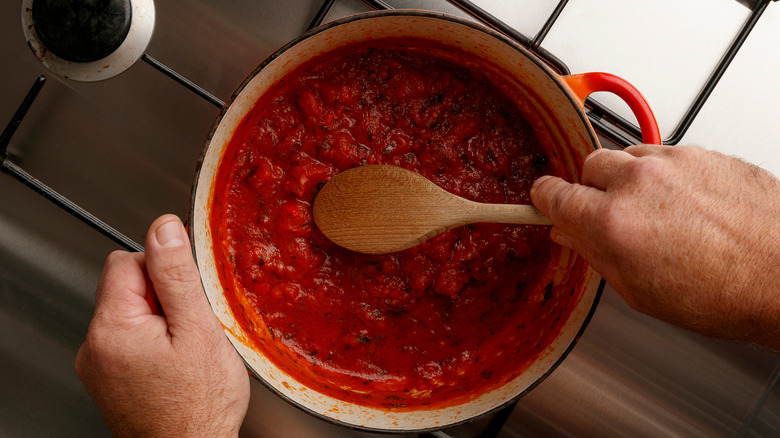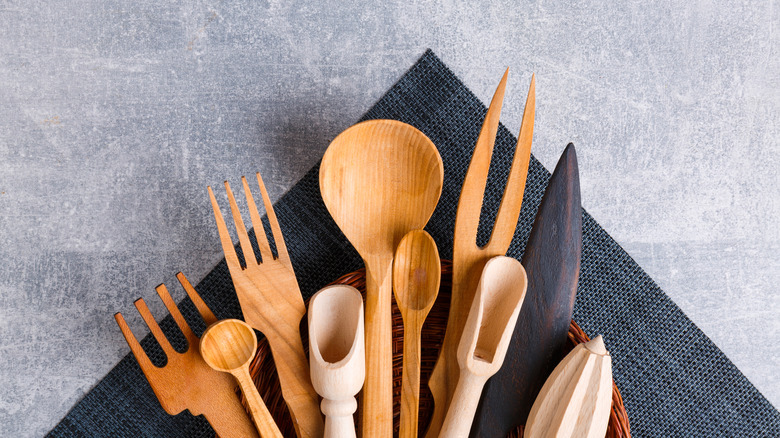Here's How Long Wooden Spoons Should Really Last In Your Kitchen
If you're like most of the population, you probably have wooden spoons in your kitchen. They are easy to use, they don't scratch cookware, and they seem to last forever. As a matter of fact, wooden utensils are actually better to use than their plastic counterparts specifically because they are wood. Food safety researcher Dr. Ben Chapman told MarthaStewart.com that water and bacteria disperse on the surface of the wood, creating a "capillary action" that provides a protective barrier on them. In addition, wood is naturally antimicrobial, meaning germs have a hard time growing on it.
However, while wooden spoons can last years, they are not meant to last forever. So, how do you know when to replace your wooden spoons? There are several telltale signs that your spoon has seen better days — not to mention a general figure for when it's time for a replacement. Here's when you know it's time to get a new one.
Take care of your wooden spoons for long life
If you take good care of your wooden spoons, they can last a long time. Specifically, Her World recommends replacing your wooden utensils every five years or so.
One clue that it's time to replace your spoon is if it has any cracks in it, as microbes and bacteria can live in them, raising the risk of spreading germs (via Southern Living). Another sign to toss your spoon is if you notice that it takes a long time to dry. Additionally, food safety researcher Dr. Ben Chapman told MarthaStewart.com that if you see a split somewhere on the end, it's time to get a new one.
Cracks occur because of exposure to extreme temperatures, especially from hot water in the dishwasher. Therefore, the best way to clean your spoon is to wash it by hand, per Apartment Therapy. Excess moisture also causes wooden utensils to degrade over time, so place it to dry with the spoon end up, so it can air out completely (via MarthaStewart.com).
To extend the life of your wooden spoons, you can oil them with mineral oil or beeswax, which helps protect the surface of the spoon from drying out. Avoid using any food-based oils like vegetable or olive oil because they will become rancid with time. If you notice your spoon has some rough spots, you can sand them with fine sandpaper, per The Spruce Eats. Just be sure to give it a thorough washing when you're finished.

